


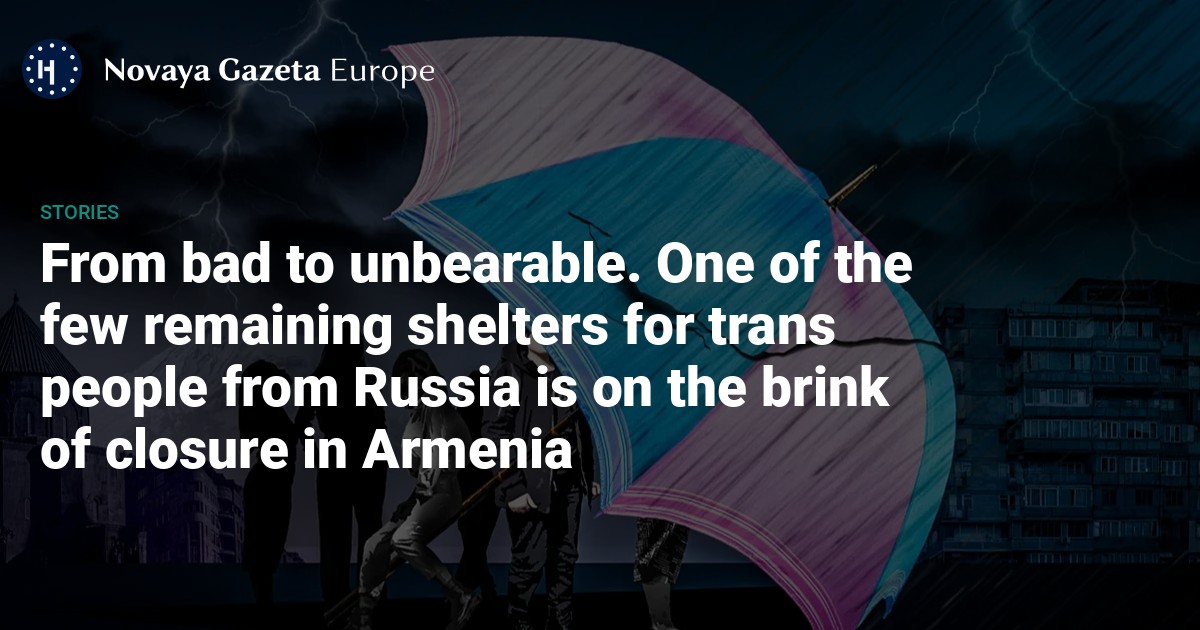
In Armenia, trans Russians fleeing increasingly repressive anti-LGBT laws have found a rare refuge. Now, their safe space is under threat.
In January 2024, a new shelter for trans people quietly opened its doors in central Yerevan, the capital of Armenia. Set up by volunteers and coordinators from Russia’s Centre T, a grassroots initiative supporting trans communities, it was part of a broader exodus after Russia’s Supreme Court labelled the “international LGBT movement” extremist in November 2023.
The new home felt safer, if far from perfect. Transphobia persists in Armenia, and police are often reluctant to accept complaints from trans people. Still, compared to Russia’s increasingly repressive environment, it offered a much-needed haven.
For those escaping imminent threats, Armenia is often the only viable option.
Armenia has become one of the few accessible destinations for trans Russians fleeing the crackdown. Entry is possible with internal Russian identification, and while it is still difficult to settle permanently, it is much more feasible than reaching the EU. Accommodation and basic employment are within reach. For those escaping imminent threats, Armenia is often the only viable option.
A Novaya Gazeta Europe correspondent visited the Yerevan shelter to speak with the people who run it — and those who have found temporary safety within its walls.
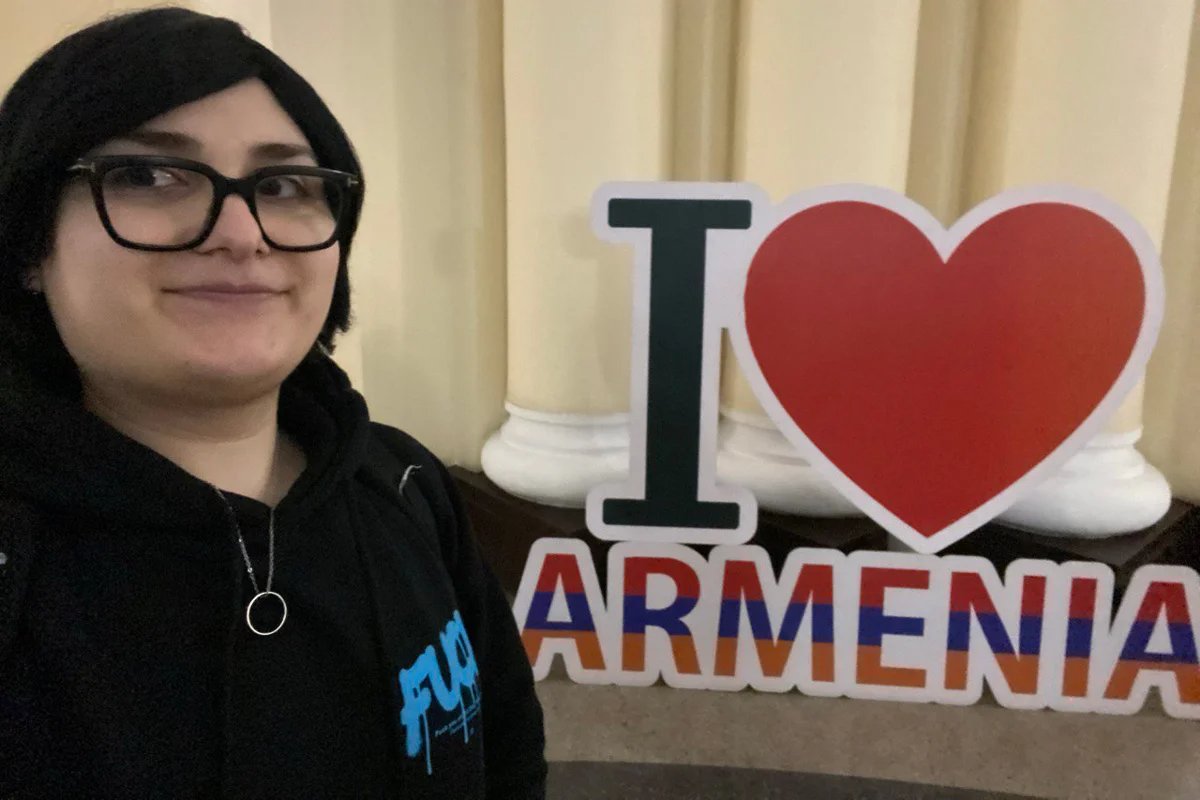
Iona. Photo from personal archive
The shelter is housed in a modest flat in central Yerevan. It accommodates no more than six people at once — a condition set by the landlord. It has two bedrooms, and a shared living room that doubles as a kitchen. Notices stuck to cupboards ask residents to wash up after themselves and keep quiet at night. At first glance, it could pass for any shared flat rented by young expats.
Centre T originally operated in Moscow. But after Russia outlawed the “extremist LGBT movement” in late 2023, the group evacuated. They considered Georgia, but ultimately chose Armenia because not everyone had an international passport.
Now, the shelter is run by two trans women: Iona, who volunteers as the manager, and Sasha, the coordinator. This month, Sasha won’t receive any salary — the American grants that once supported Centre T have been pulled. Donations still trickle in through Patreon and Buy Me a Coffee, but are not enough to cover costs.
“We’re trying to raise $2,400 a month,” Iona explains. “$900 goes on rent. The rest covers the coordinator’s and psychologist’s salaries, food, and medication for our residents. We’ve already had to cut the psychologist’s pay.”
While few trans people see Armenia as a long-term home, not everyone qualifies for EU humanitarian visas.
Despite the funding shortfall, demand remains high. “We’re at full capacity right now,” says Iona. “We’ve got four applications pending. Deciding who to accept is painful. We prioritise the most urgent cases. If we’ve already helped someone once, we usually can’t take them in again.”
Residents usually stay for a month. If they’ve made real progress towards finding work and housing, they may be allowed to stay longer. But those who show no initiative are asked to leave.
Over the past 18 months, dozens of trans and non-binary people have passed through: some en route to Europe, others seeking medical transition procedures that are now essentially banned in Russia, after Vladimir Putin signed a law banning gender reassignment surgery and hormone therapy for transgender people in July 2023.
Many Russian doctors who used to perform gender-affirming surgeries have also relocated to Armenia, says Iona. While few trans people see Armenia as a long-term home, not everyone qualifies for EU humanitarian visas. For those who remain in Yerevan, one of the biggest obstacles is finding a job. Cleaning and courier work are usually the only options — low pay, long hours, and little security.

Illustration: Novaya Gazeta Europe
Lina, a trans woman staying at the shelter, is hesitant to talk. She keeps her head down, touching her face often. She says she first realised something felt “wrong” in her childhood — when she looked in the mirror, she saw someone else staring back.
“In Russia, I hated myself,” she says. “I was in a deep depression all the time. I could only start my transition in Kazakhstan, where I went in 2022 to avoid mobilisation”, the mass draft announced by Putin in September of that year.
After relocating, she came out to friends and her mother back in Russia. Her friends immediately turned away. Her mother sent her a message: “I don’t have a son anymore.” Later, though, she accepted Lina’s decision and now they’re back in touch.
Lina worked as a taxi driver in Russia and tried to do the same in Yerevan. At first, things went smoothly. Then, one day, she went to work in clothing that made her feel comfortable as a woman. “I was tired of being scared,” Lina says.
Passengers, seeing a male name in the app, left poor ratings. Eventually, Lina was blocked from the more profitable rides. She couldn’t cover the car rental anymore, and promptly had to quit. She doesn’t now know what to do next.
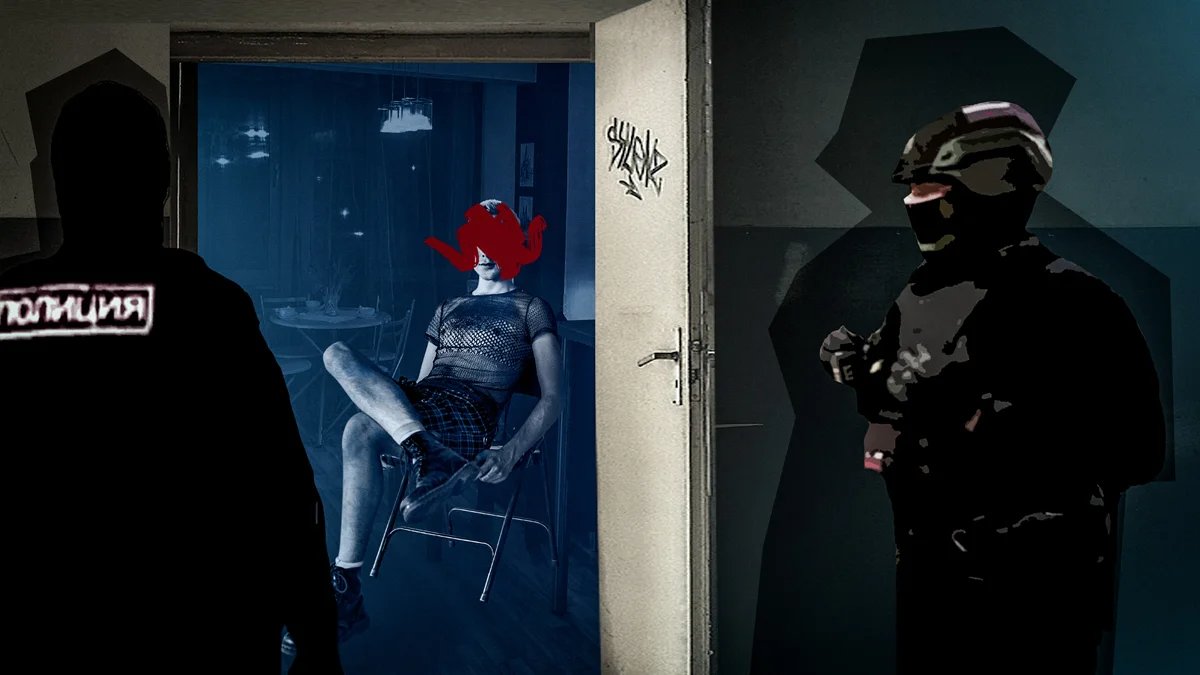
Illustration: Novaya Gazeta Europe
Anna* arrived in Yerevan in February and spent two weeks at the Centre T shelter.
“In Russia, my mother had me listed as missing. She found police officers who threatened me with arrest for ‘LGBT propaganda’,” she says, referring to a law adopted in December 2022 providing for fines of up to 4 million rubles (€44,000) for disseminating anything the government considered “propaganda of non-traditional relationships”.
Anna was born in a small town in central Russia and realised she was trans at 14. School became a nightmare. Her mother didn’t protect her — in fact, she pushed Anna to conform.
Anna also struggled with undiagnosed ADHD and autism, she believes. Her mother forced her to study in their hometown. After graduating, she couldn’t find work. At interviews and internships, she was regularly rejected or fired. Her longest job lasted nine months — working at a pickup point for online orders.
Anna had started hormone therapy in Russia and lived in a rented flat — until police showed up. Her mother had declared her missing.
Three plainclothes officers accused her of “LGBT propaganda”. They said just “dressing like a woman” counted. They mocked her, threatened to send her to a psychiatric hospital or jail, and hinted she’d be abused in prison.
“They brought my mother in,” Anna recalls. “They forced me to go back to her place, basically under house arrest. They talked about ‘turning me back’ into a man.”
Her mother cut her hair and made her wear men’s clothes. Eventually, Anna contacted a Russian support group called Sphere, who helped her flee.
In Yerevan, she works packing goods and distributing leaflets. Centre T and Sphere provided some financial support. She now looks more feminine and no longer faces street harassment. But she avoids jobs that require ID — her documents still carry her male name and gender marker.
Armenia also gave her access to proper hormone therapy. In Russia, she could only get cheap medication riddled with side-effects.
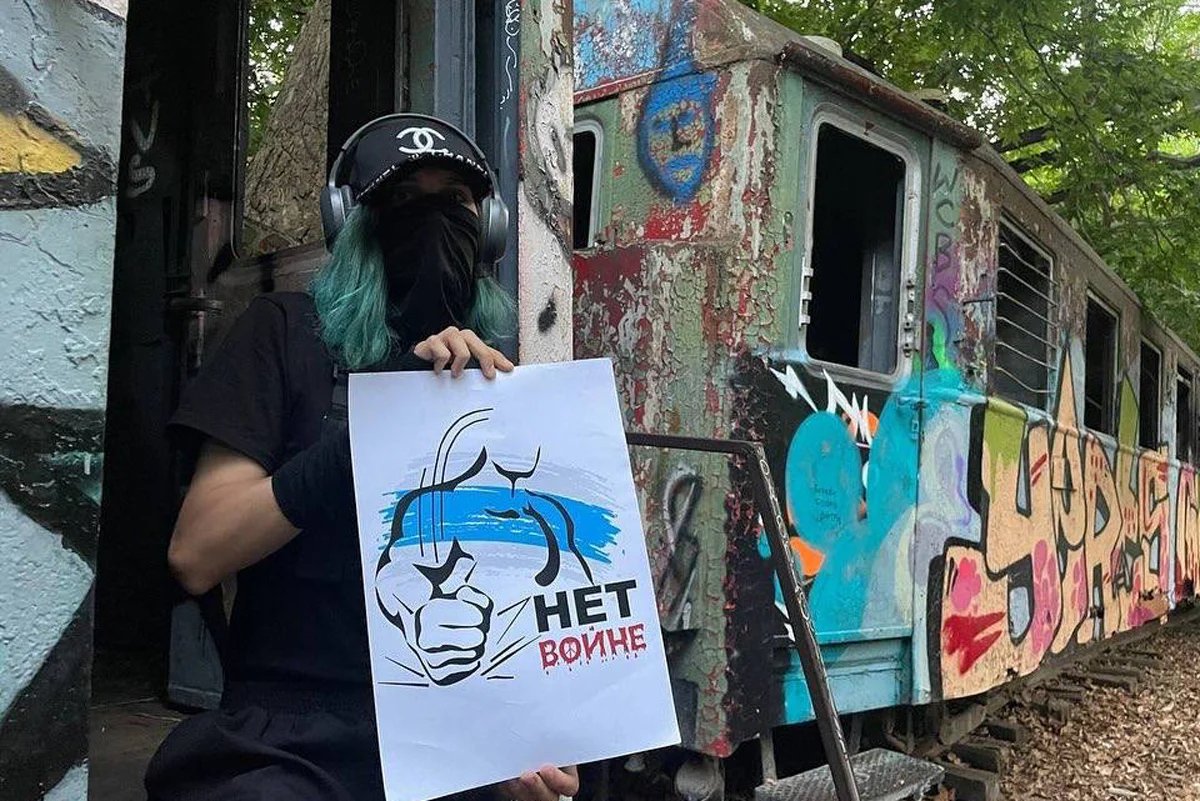
Zhenya Morris: Photo from personal archive
Zhenya Morris stayed at the Centre T shelter in Yerevan in May–June 2023. She used to be an activist for LGBT rights in Russia, but fled when police raided her flat.
Later she learned she had been charged with spreading “LGBT propaganda” and “discrediting the Russian army”, another repressive law introduced shortly after the full-scale invasion of Ukraine. Initially, she hoped to go to Germany — but securing a humanitarian visa for France turned out to be faster.
“French society is more tolerant,” she says. “I heard a lot of bad things about Germany. In France, there’s less bureaucracy. When I arrived, there was a big protest in Paris against banning medical transition for adolescents. Lots of people were there.”
She has also noticed a shift, and getting to the EU is now much harder.
Zhenya still volunteers remotely with Centre T. After leaving Russia, she helped evacuate seven trans people in danger — most of whom passed through the Yerevan shelter.
“My main advice? If you have an international passport, don’t show it at Russian border control — especially if you’ve got a humanitarian visa. It’s safer to first go somewhere that accepts just a domestic Russian passport. Armenia is one such place.”
But she has also noticed a shift, and getting to the EU is now much harder.
“It’s become way more difficult to get humanitarian visas for queer and trans people,” she says. “Many are stuck in Armenia for the long haul.”
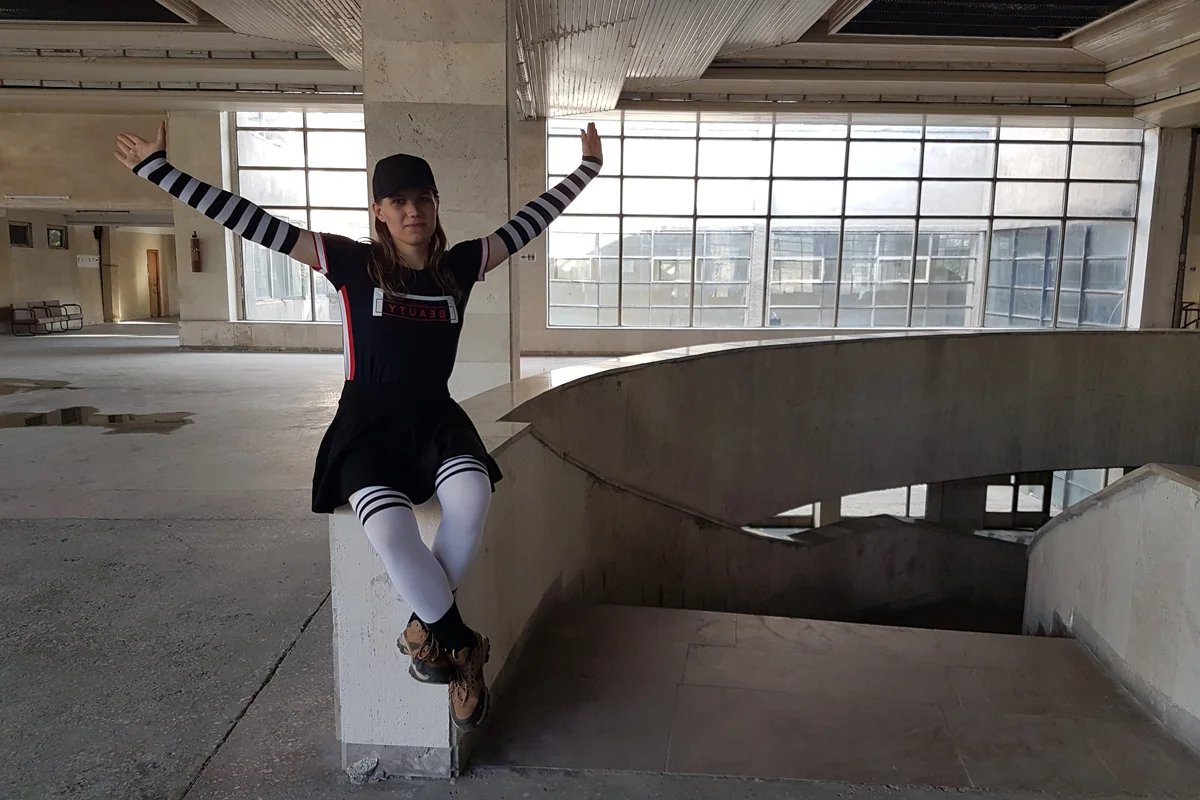
Sasha, the shelter coordinator. Photo from personal archive
For a long time, Armenia was seen as relatively safe for Russian trans and non-binary people. “The way Armenia treats its own trans citizens is like how small-town Russia treats its queer people,” says shelter coordinator Sasha. “But they see us, Russians, as different — like we’re from another culture. They’re less demanding of us.”
However, things are getting worse. The support group Sphere documented at least four attacks on Russian trans people in Yerevan between March and May. In late May, Iona’s friend Stesha was attacked in a park. Three teenagers — around 16 to 18 — spat in their direction and made hostile comments. Then adult men joined in. During the confrontation, Stesha was hit in the head twice. She was hospitalised, and later went to the police.
“The police treated us more or less fine,” says Iona, “but still with a lot of transphobia. They told us being trans was wrong — that in Armenia, LGBT people keep quiet and don’t wear ‘flashy’ clothes. We should do the same.”
He believes attitudes in Armenia are becoming harsher. The police often dismiss trans people’s complaints. Still, it’s safer than Russia.
According to Iona, the Centre T shelter is now one of the very few safe places for trans people from Russia. That’s confirmed by Chris, a staff member at a support organisation for trans people.
“Any safe shelter for trans people is a gift — no matter where it is,” says Chris. “But there are very few left. Many trans-friendly shelters that opened after the invasion have shut down or are on the verge of closing.” He believes attitudes in Armenia are becoming harsher. The police often dismiss trans people’s complaints. Still, it’s safer than Russia.
“When things get worse in Russia, they get exponentially worse for marginalised groups,” says Chris. “It went from bad to unbearable. In Russia, you can’t get documents or medicine. You can’t even openly exist. You can’t work with support groups. There’s now an entire generation of young trans people who came of age after the annexation of Crimea — and reached adulthood during the full-scale war. They’ve never had a legal or safe path to transition in their own country. And now they want out too.”
*Not her real name.
The Russian government has banned independent media. We were forced to leave our country in order to keep doing our job, telling our readers about what is going on Russia, Ukraine and Europe.
We will continue fighting against warfare and dictatorship. We believe that freedom of speech is the most efficient antidote against tyranny. Support us financially to help us fight for peace and freedom.
By clicking the Support button, you agree to the processing of your personal data.
To cancel a regular donation, please write to [email protected]
VPNovaya
Help Russians and Belarusians Access the Truth
